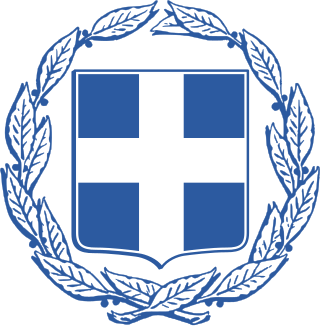As one of the oldest Euro-Atlantic member states in the region of Southeast Europe, Greece enjoys a prominent geopolitical role as a middle power, due to its political and geographical proximity to Europe, the United Kingdom, France, Italy, Cyprus and the rest of the European Union and NATO, Lebanon, the United Arab Emirates, North Macedonia, Saudi Arabia, Serbia, Switzerland while at the same time focuses at improving further the good relations with the Arab World, Caucasus, China, India, South Korea, Japan, Mongolia, Vietnam, The Philippines, South Africa, and the rest of the African Union, Arab League, BRICS, CELAC and Nordic Council. As member of the European Union, the Union for the Mediterranean, and the Council of Europe, Greece is a key player in the eastern Mediterranean region and has encouraged the collaboration between neighbors, as well as promoting the Energy Triangle, for gas exports to Europe. Greece also has the largest economy in the Balkans, where it is an important regional investor.

The Constitution of Greece was created by the Fifth Revisionary Parliament of the Hellenes in 1974, after the fall of the Greek military junta and the start of the Third Hellenic Republic. It came into force on 11 June 1975 and has been amended in 1986, 2001, 2008 and 2019.

Konstantinos G. Karamanlis was a Greek politician who was the four-time Prime Minister of Greece and two-term president of the Third Hellenic Republic. A towering figure of Greek politics, his political career spanned portions of seven decades, covering much of the latter half of the 20th century.
Greece, officially the Hellenic Republic, is a country in south-east Europe.

The President of Greece, officially the President of the Hellenic Republic, commonly referred to in Greek as the President of the Republic, is the head of state of Greece. The President is elected by the Hellenic Parliament; the role has been mainly ceremonial since the 1986 constitutional reform. The office was formally established by the Constitution of Greece in 1975, but has antecedents in the Second Hellenic Republic of 1924–1935 and the Greek junta in 1973–1974 which predated the transition to the current Third Hellenic Republic. The incumbent, since 13 March 2020, is Katerina Sakellaropoulou, the country's first female president.

Michail Stasinopoulos was a Greek jurist and politician who served as the President of Greece from 18 December 1974 to 19 July 1975. A member of New Democracy, he was the first officeholder under the Third Hellenic Republic.

The coat of arms of Greece or national seal of Greece comprises a white Greek cross on a blue escutcheon, surrounded by two laurel branches. It has been in use in its current form since 1975. Prior to the adoption of the current coat of arms, Greece used a number of different designs, some of which were not heraldic; the first heraldic design was introduced in 1832 and its main element, the blue shield with the white cross, has been the base for all other national coats of arms since then. The design is a heraldic representation of the Greek national flag adopted in 1822, which featured a white cross on a blue field.
In the modern history of Greece, starting from the Greek War of Independence, the Constitution of 1975/1986/2001 is the last in a series of democratically adopted Constitutions.

The Presidential Mansion in Athens, Greece, is the official residence of the president of the Hellenic Republic. It served previously as the Royal Palace, until the abolition of the monarchy by the 1974 referendum.

The history of the Hellenic Republic constitutes three republican periods in the modern history of Greece: from 1822 until 1832; from 1924 until 1935; and from 1974 through to the present. See also the constitutional history of Greece.

The Second Hellenic Republic is a modern historiographical term used to refer to the Greek state during a period of republican governance between 1924 and 1935. To its contemporaries it was known officially as the Hellenic Republic or more commonly as Greece. It occupied virtually the coterminous territory of modern Greece and bordered Albania, Yugoslavia, Bulgaria, Turkey and the Italian Aegean Islands. The term Second Republic is used to differentiate it from the First and Third republics.

The First Hellenic Republic was the provisional Greek state during the Greek Revolution against the Ottoman Empire. From 1822 until 1827, it was known as the Provisional Administration of Greece, and between 1827 and 1832, it was known as the Hellenic State.

The President of the Hellenic Parliament is the presiding officer of the Parliament of Greece. The president's term coincides with the term of the assembly,and is chosen by a vote during the opening session, after each legislative election. Following is a list of speakers of the Hellenic Parliament or other national legislative bodies such as the Greek Senate, from the time of the Greek War of Independence till present. The official order of precedence ranks the speaker of the Hellenic Parliament in the 3rd position, after the President of the Republic and the Prime Minister.

The following outline is provided as an overview of and topical guide to Greece:
The name of Greece differs in Greek compared with the names used for the country in other languages and cultures, just like the names of the Greeks. The ancient and modern name of the country is Hellas or Hellada (Greek: Ελλάς, Ελλάδα; in polytonic: Ἑλλάς, Ἑλλάδα), and its official name is the Hellenic Republic, Helliniki Dimokratia. In English, however, the country is usually called Greece, which comes from the Latin Graecia.

The American Hellenic Institute (AHI) is a Greek American organization created in 1974 to strengthen US-Greece and US-Cyprus relations, as well as relations within Hellenic-American community. The group has a lobbying focus, which distinguishes it from the other organizations associated with AHI.
Hellenic State, also translated as Greek State, was used as the official name of the modern Greek state three times in its history:

Monarchy of Greece or Greek monarchy is the constitutional form of government by which a hereditary sovereign (Basileus) reigns as the head of state of Greece. Monarchy in Greece lasted from 1832 to 1924 and from 1935 to 1973.










